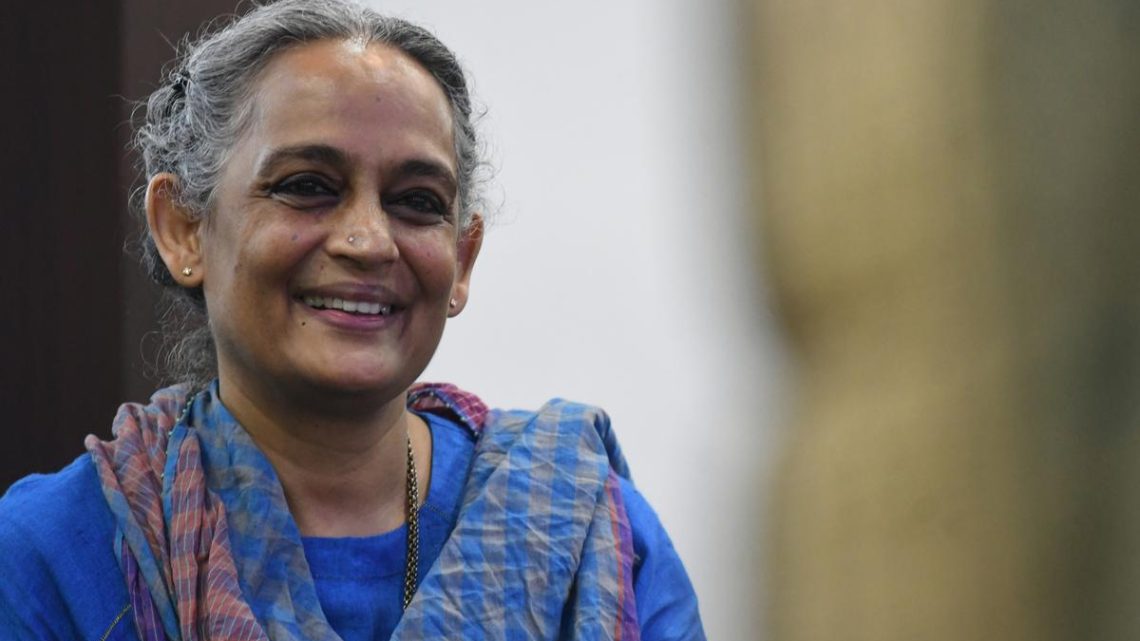
Arundhati Roy Awarded PEN Pinter Prize Amid Murder Threats over Kashmir Comments
June 27, 2024Indian author Arundhati Roy has been honoured with the prestigious PEN Pinter Prize, just two weeks after Indian authorities granted permission to prosecute her for comments made about Kashmir 14 years ago. The award is given annually to a writer who, in the words of the late playwright Harold Pinter, casts an “unflinching, unswerving” gaze on the world and demonstrates a “fierce intellectual determination … to define the real truth of our lives and our societies.”
The judges praised Roy, who won the Booker Prize in 1997 for “The God of Small Things,” for her “incisive commentary on issues ranging from environmental degradation to human rights abuses.” Her work has consistently spotlighted critical social and political issues, earning her both acclaim and controversy.
On June 14, Delhi’s most senior official sanctioned the prosecution of Roy under India’s stringent anti-terror laws for a statement she made in 2010, claiming that the disputed region of Kashmir had never been an “integral” part of India. This decision has sparked significant backlash, with over 200 Indian academics, activists, and journalists signing an open letter urging the government to withdraw the charges.
Roy has been an outspoken critic of Prime Minister Narendra Modi’s government. Salil Tripathi, a board member of PEN International, wrote in the Guardian that despite Modi losing his parliamentary majority in the recent elections, it is “wrong to assume [he] has changed.” Tripathi emphasized the continuing importance of safeguarding free speech and dissent in the face of government repression.
The PEN Pinter Prize, named after the Nobel-winning British playwright Harold Pinter, recognizes writers who courageously reflect societal truths and challenge injustices. Roy’s receipt of this award amid the current legal controversy underscores her commitment to these principles, even as she faces significant personal and legal challenges.
In her acceptance speech, Roy reiterated her commitment to speaking out against oppression and injustice. She emphasized the vital role of writers and intellectuals in holding power to account and defending democratic values. Her words resonated with many who see her as a symbol of resistance against the erosion of civil liberties in India.
The controversy surrounding Roy’s comments on Kashmir and her subsequent prosecution highlights the broader issues of free speech and human rights in India. The international community, including prominent literary and human rights organizations, continues to monitor the situation closely, advocating for the protection of Roy and other dissenting voices.
In conclusion, Arundhati Roy’s award of the PEN Pinter Prize is a testament to her enduring influence as a writer and activist. It also serves as a stark reminder of the ongoing struggle for free expression in India, underscoring the need for continued vigilance and support for those who dare to speak truth to power.

